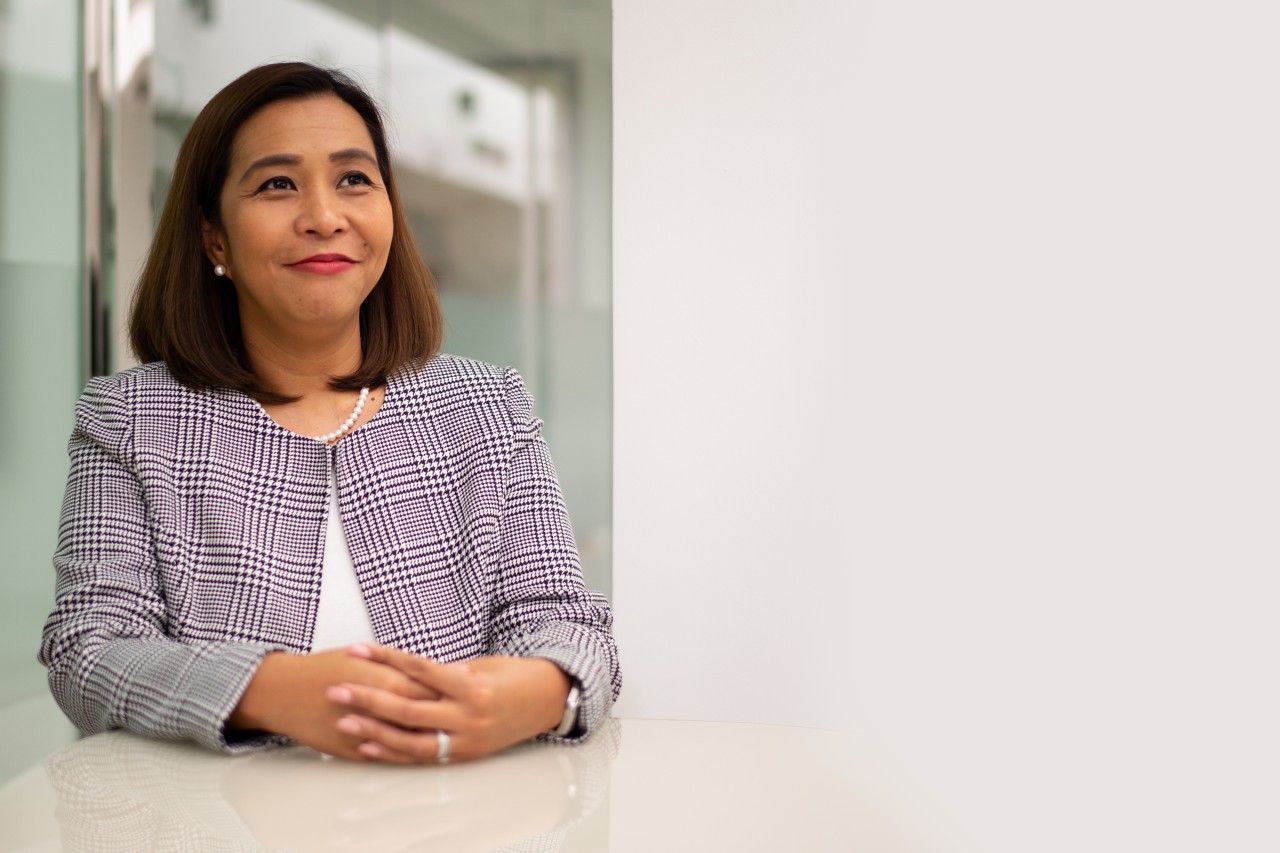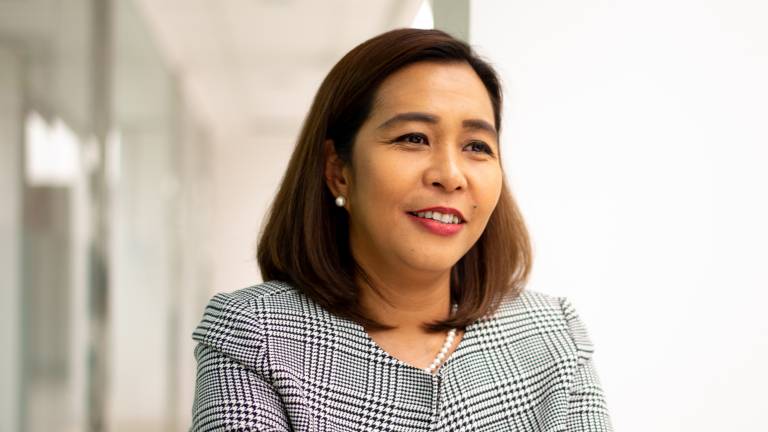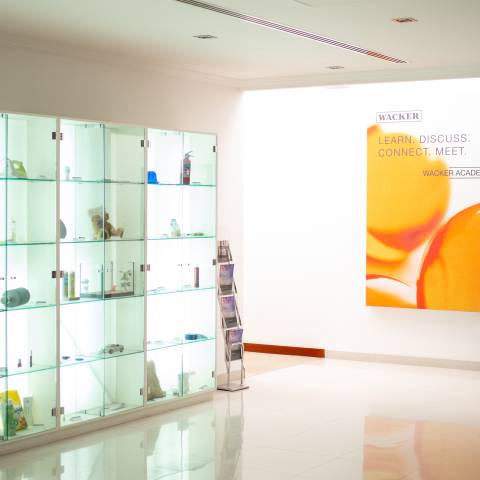
Values That Extend Beyond the Company Gates
WACKER Cares
Employee Portrait: Irma Villanueva
Human Resources Management in the Middle East and African Region
Once again we find ourselves drawn to Dubai. This time, however, we are not here to discuss construction industry challenges or suitable materials that are customized per regional needs, but to look at resources – in a figurative sense. When we talk about human resources, or HR, the focus is not on physical resources, but rather on a company’s workforce. In order to take a closer look at this field, we’re meeting with Irma, who tells us about her job as an HR and administration manager.
“I think it’s really important to involve employees and colleagues and to put yourself in their shoes.”
“I’m Irma. I’m originally from the Philippines. I’ve been living in the UAE since 1998, and it’s become a second home to me. I joined WACKER in 2003, where my responsibilities revolve around human resources and administration. There are easily a hundred good reasons why I’m at WACKER. But what I really appreciate about the work are the values that the company instills in its employees. I also love that the company cares about its employees and really focuses on them – and not just on the business itself.”

Irma Villanueva’s Work in Human Resources Management
Companies benefit from well-organized human resources management in many different ways. HR is not just about the company and the most profitable way to put its workforce to use – more than anything else, it’s about how best to motivate employees and be sensitive to their desires and needs as human beings. Irma’s workday reflects how unique and variable those can be.
“In my opinion, there’s no such thing as a traditional 8-to-5 workday in administration and HR. You often have to deal with topics that come up spontaneously and you have to act on them diligently.”
After all, the matters here are human needs and concerns. Irma knows that she cannot address those concerns like products on an assembly line – some will require a great deal of time and sensitivity.
Social Responsibility and Productivity
Human Resources is responsible for more than just organizational and administrative tasks. By meeting the company’s social responsibilities to its employees, Irma and her team make a crucial contribution in creating the corporate culture and ultimately a positive work environment.
“When it comes to employee development, for example, we make sure that we offer the right training opportunities for each and every individual. At the same time, we’re also particularly sensitive to the well-being of our fellow employees. That includes providing good health insurance.”
Accepting social responsibility for its own employees gives WACKER a healthy corporate culture. Irma acknowledges that what really matters here are the fundamental values that determine how a company treats its employees. When those values are positive and support career advancement, they improve a company’s chances of finding – and retaining – good employees, especially in times when headhunters are working to lure talent away.

- Irma Villanueva
Diversity: WACKER’s Common Denominator
“I used to work in a German company, and that set the tone for the culture too. Of course it was important to adjust your own mindset there. If you’re always thinking, ‘No, in Dubai we work this way and this other way is how people work in Germany,’ then that’s just not going to work in a company as big as WACKER. Collaboration is key. You involve others and stay open to new ideas.”








HR for the WACKER Middle East and African Region
There are four jobs at the heart of human resource management: hiring, planning, matching the right people to the right jobs and – maybe most important – retaining employees. Generally speaking, people stay when they identify with the company’s goals and the predominant corporate culture. Irma feels that the diversity of the workforce, particularly in subsidiaries, makes a unique contribution in that regard.
“WACKER’s Middle East and Africa sites have a really unique setup, I think. The main reason I say that is because the employees here represent 15 different nationalities in one office alone. But despite our different cultural backgrounds, we’re all pursuing the same vision and the same purpose. This shapes the corporate culture: WACKER has created a common foundation, and that helps us do an especially good job of achieving our shared corporate mission. That really does make us unique. WACKER acts as a common denominator, in other words – a place where people from widely differing cultures can come together and work as a team.”
“I really appreciate our company's common corporate culture. Basically, joining WACKER is like a cultural shift – in a positive sense.”
Wacker Middle East and Africa – an HR Manager's Perspective
Watch what the HR and administration manager has to say about human resources in the WACKER Middle East and Africa region.
Looking Beyond the Company

“I think our company is a good example of what sociologists call a melting pot. We make sure that we have a common purpose, so that our different backgrounds no longer have to play a role. I think that is something we extend to our customers too: the way we work together on a fundamental level definitely has an impact on our service – so it ultimately reaches other people too.”
Irma’s passion for her job is evident, as is the feeling she has of creating something good in the world with an impact beyond the company. She finishes by summarizing that mindset with a smile:
“I also appreciate that WACKER is getting ready for future global demands. That’s especially relevant for the times we live in today. I’m really glad we have policies which serve a larger purpose and it instills confidence in our employees. I’ll say it again: if your employees are happy, then that will naturally contribute to customer retention and business success. In that sense, our corporate culture extends beyond the company and out into the world, you feel like you’re doing something good here.”










